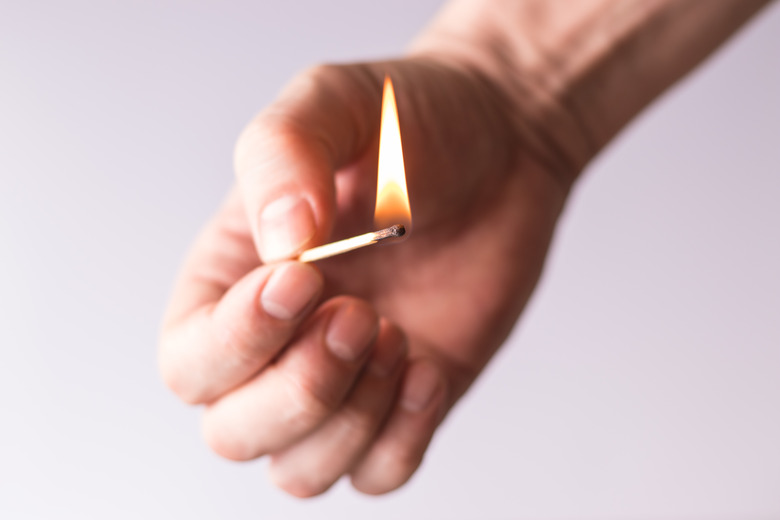Do Lit Matches Actually Make Unpleasant Smells Vanish?
As soon as there is an unpleasant smell coming from the bathroom or a stench in the kitchen garbage, many people rush to light a match. The flame sizzles and the culpable smell seems to disappear. Or does it? The answer might surprise you.
Let's take a look at the science behind what happens to a noxious odor as soon as you light a match.
Lighting a match can certainly be effective in masking a bad odor. According to HowStuffWorks, the head of a match contains phosphorus sulfide. After the compound is ignited, the sulfur mixes with the oxygen in the air to create a colorless gas called sulfur dioxide, which has a distinctive smell. Apparently, our noses are quite sensitive to the smell of sulfur dioxide, which is why it overpowers other odors.
"Hydrogen sulphide, H2S, will react with the oxygen in the air and the flame so as to form water and sulphur dioxide. Sulphur dioxide smells completely different and is much less unpleasant," Jo Døhl, head of the University of Oslo's Department of Chemistry, explained to ScienceNorway.
Does that mean lighting a match actually eliminates the smell? Not really. The show Mythbusters put this theory to the test during the episode "Franklin's Kite." The hosts pumped hydrogen sulfide and methyl mercaptan (odors commonly associated with farts and feces) into a sealed chamber. They measured the concentration of the gases before and after lighting a match, and found that the levels remained the same.
Lighting a match to confront a bad smell works like perfume — it temporarily gives us the impression that the smell has miraculously vanished. In other words, it's a quick fix to trick our brains into thinking the bad odor is gone — any maybe that is good enough.
